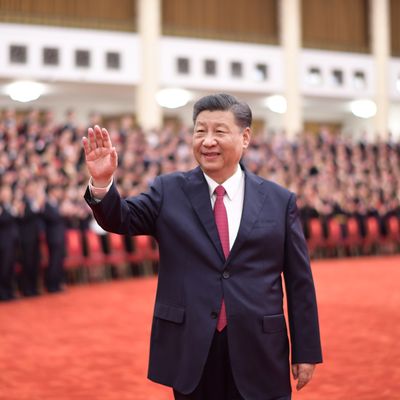
China’s Communist Party passed a landmark resolution on Thursday that enshrined Xi Jinping as one of the great leaders of the last 100 years, alongside Mao Zedong and Deng Xiaoping — the only two leaders who had previously presided over such resolutions, in 1945 and 1981. The move cements the growing cult of personality around Xi in China, and likely clears the way for the politically dominant 68-year-old to rule for at least another five years, or possibly even for life. (China got rid of presidential term limits in 2018.) A formal decision on that question is set for a twice-a-decade Party Congress to be held next year.
Under Xi’s rule, China has “achieved the tremendous transformation from standing up and growing prosperous to becoming strong,” according to Thursday’s resolution.
In the run-up to the plenary session in which the resolution was passed, state officials and media have been fawning more than usual over Xi, whose philosophy, known as “Xi Jinping Thought,” is now part of Chinese school curriculums.
Since he came to power in 2012, but especially in the last few years, Xi has positioned himself as the only person who can guide China through turbulent times and help make the country a superpower that can compete with the United States. His handling of the COVID-19 pandemic — after initial stumbles — has become a point of pride, with China suffering relatively few deaths compared to most western countries. He has also adopted an aggressively nationalist posture, cracking down on dissent in Hong Kong, making belligerent noises about Taiwan, and consigning Uighurs to “reeducation camps.”
As China becomes more assertive, its relations with the U.S. and other western countries have fallen to dismal lows. There was one rare piece of decent news on that front this week: a surprising (and vague) announcement from Glasgow that China and the U.S. would work together to curb climate change.






























